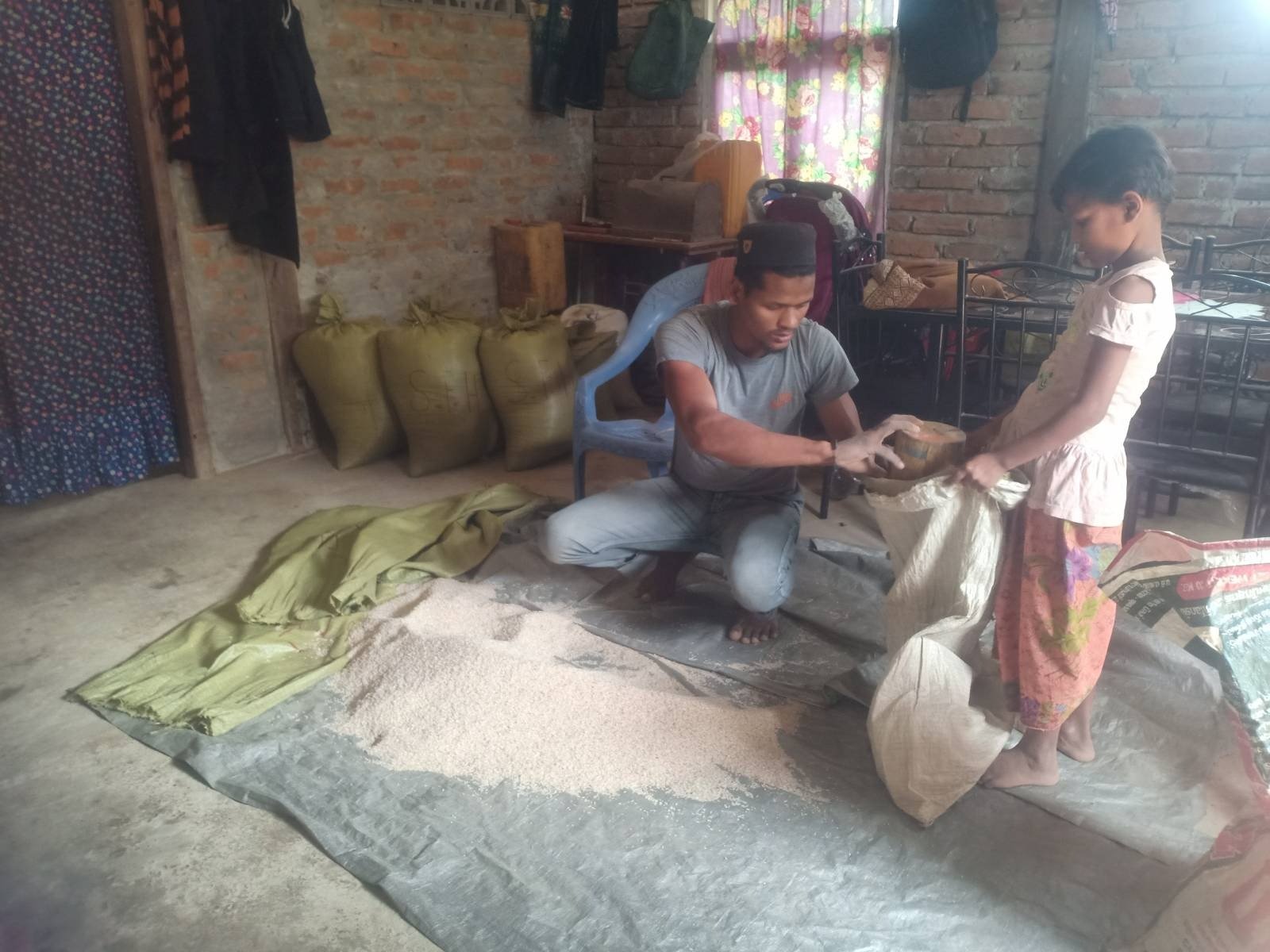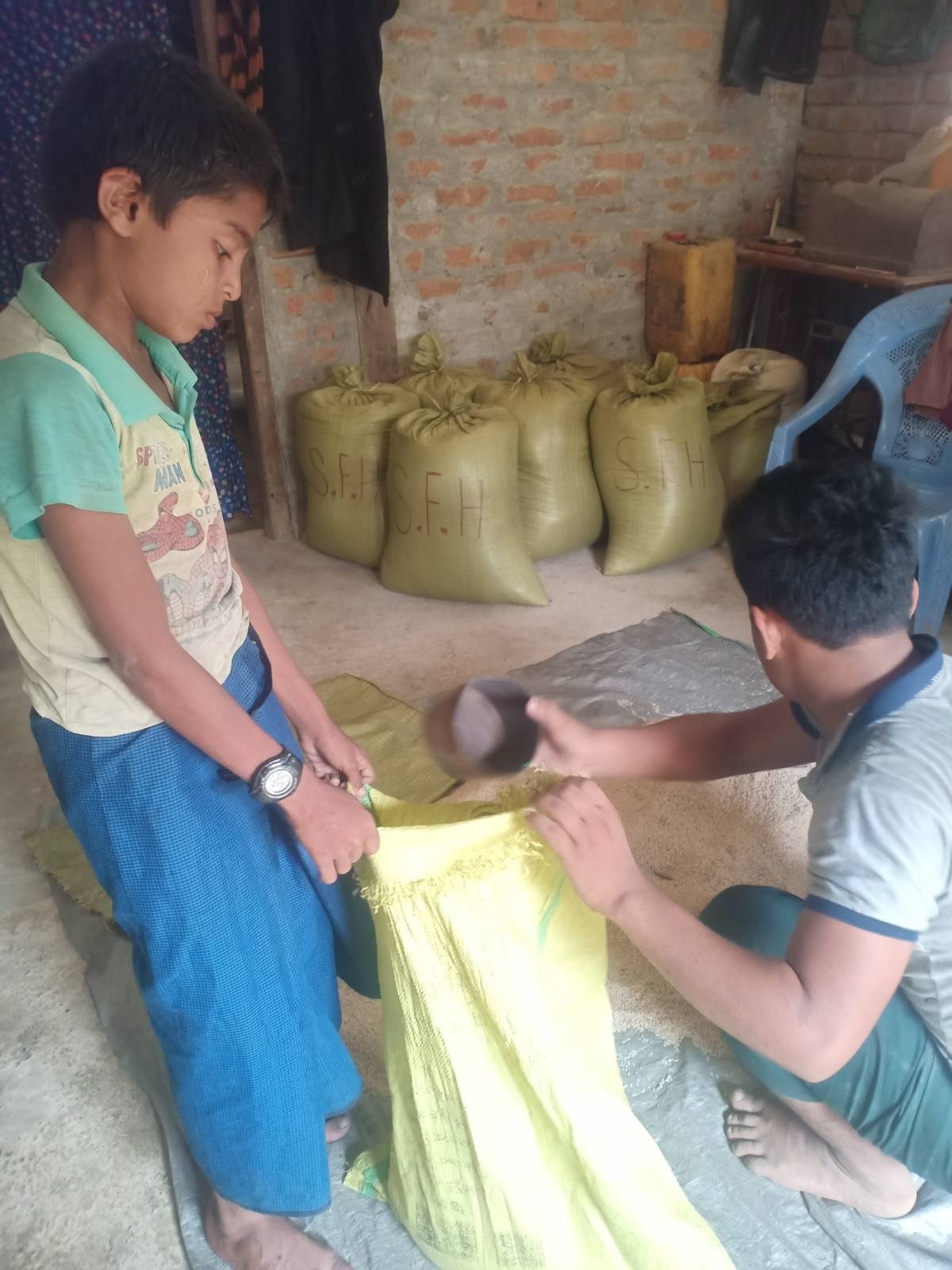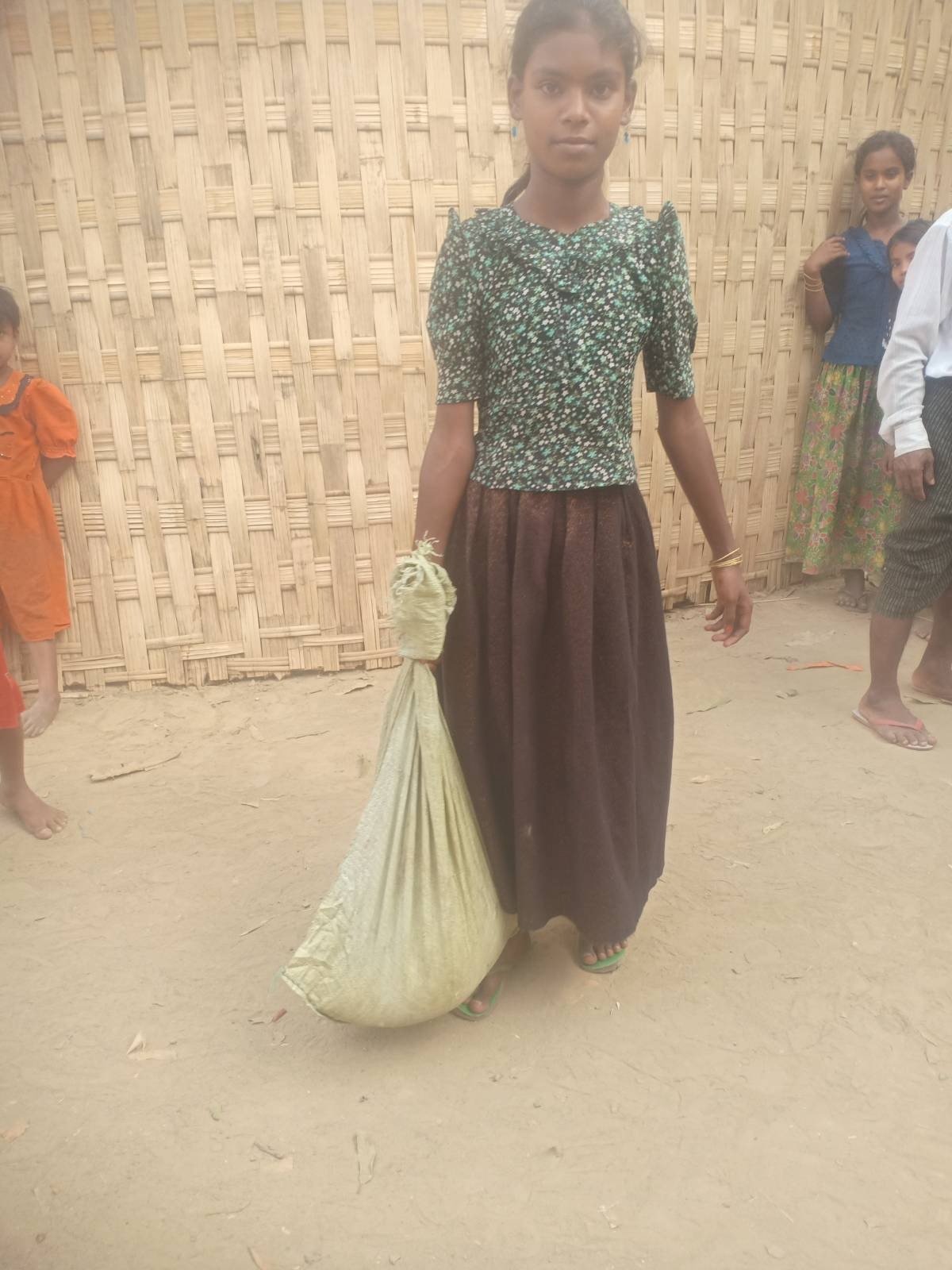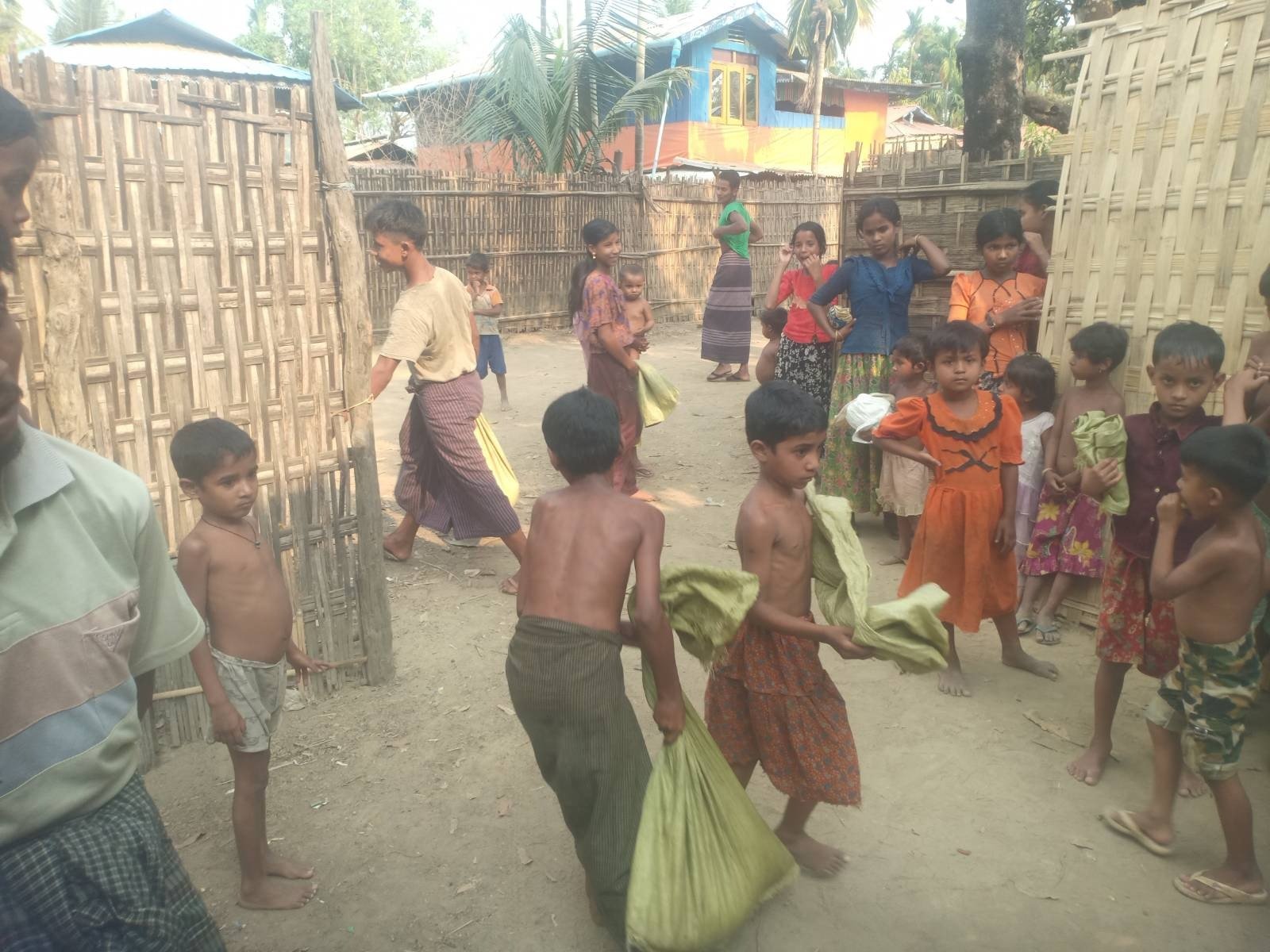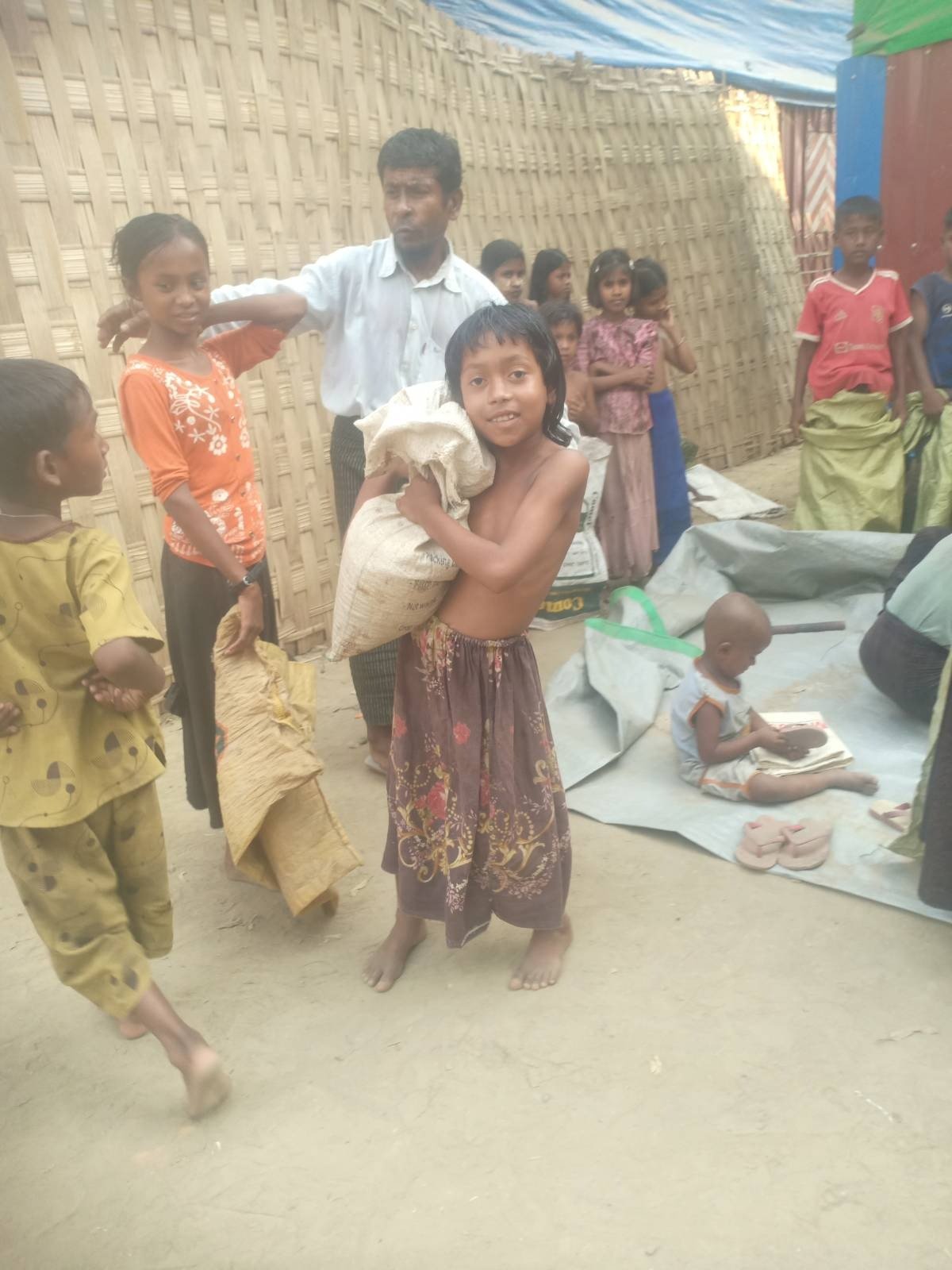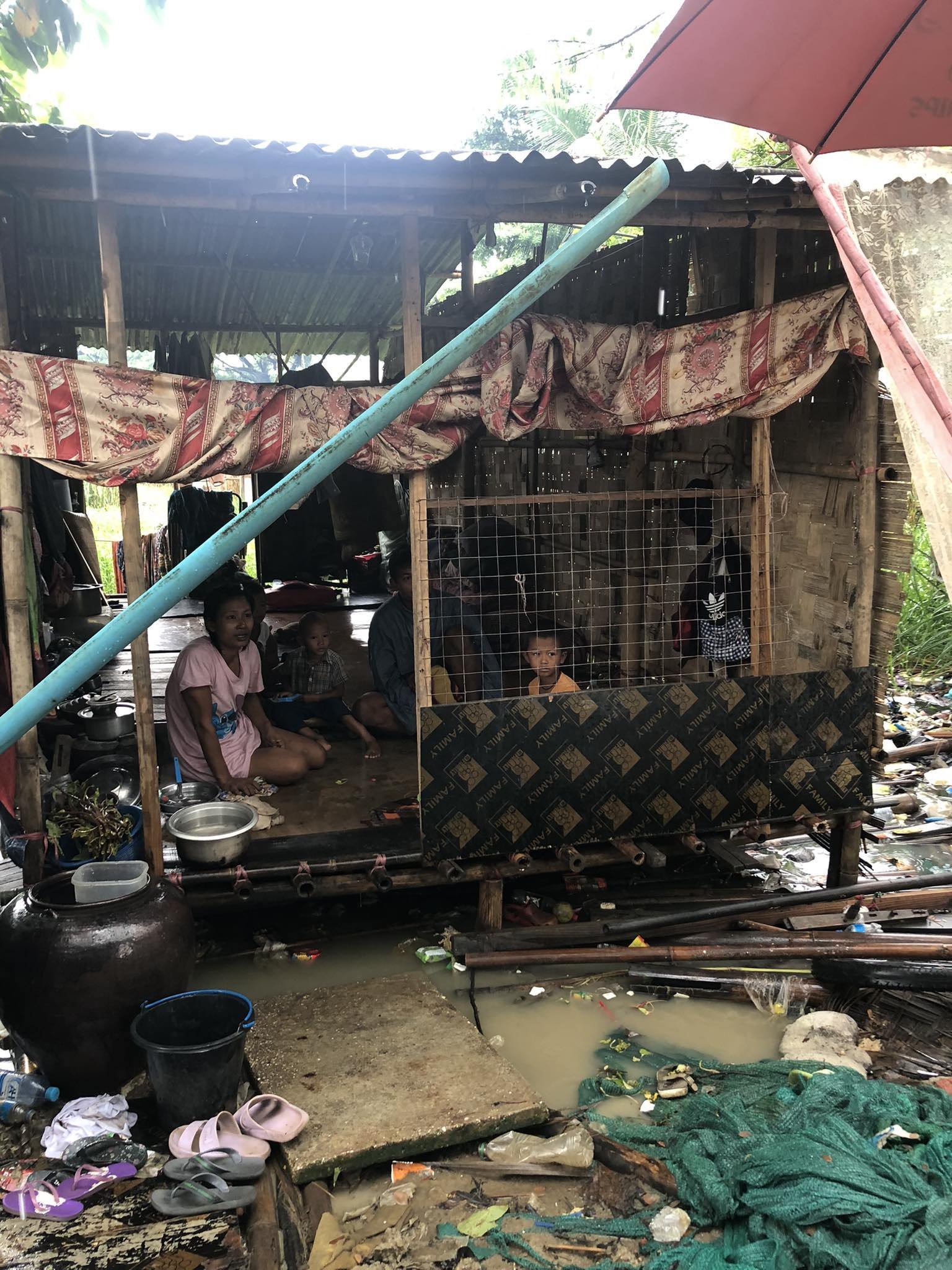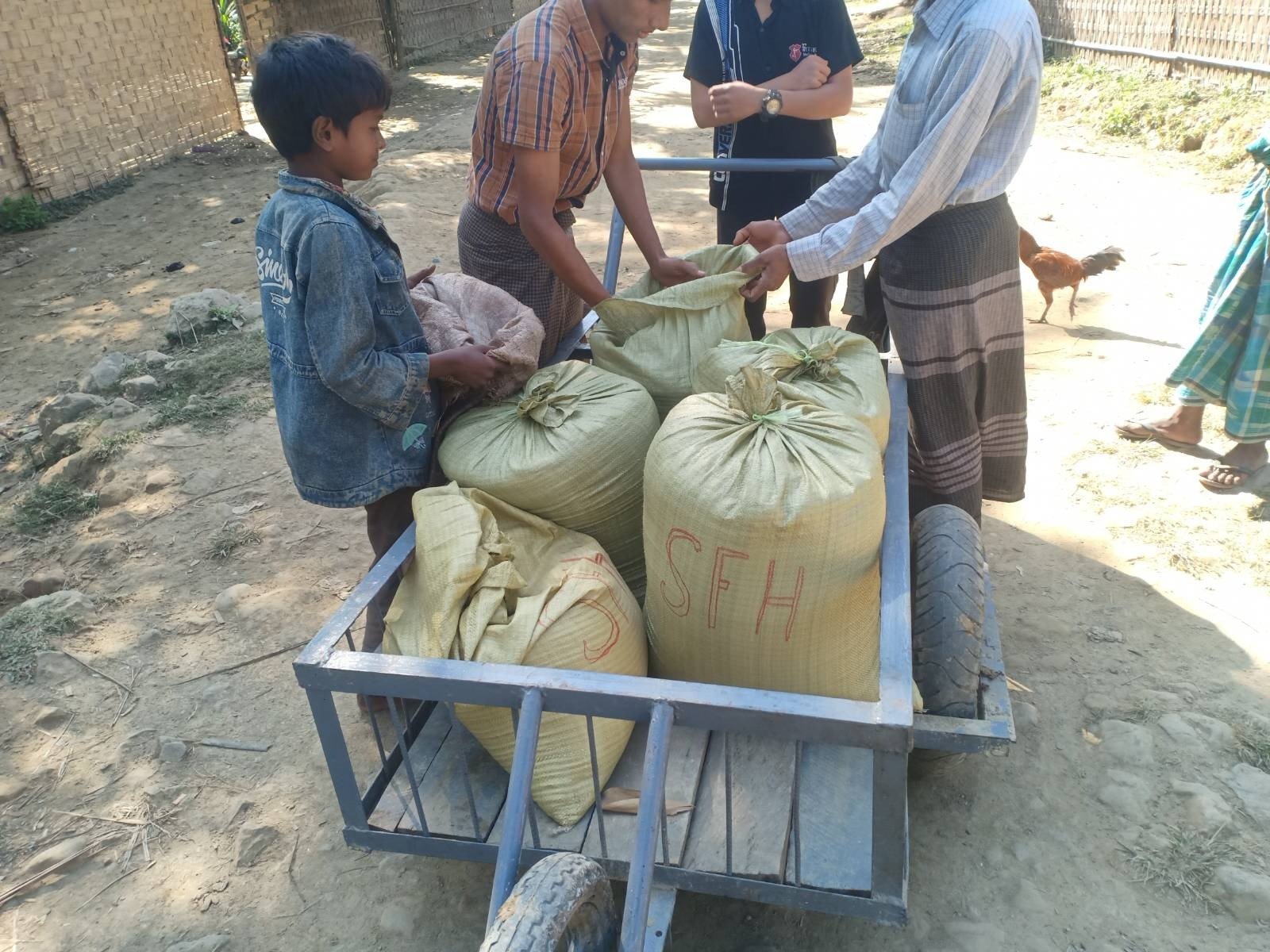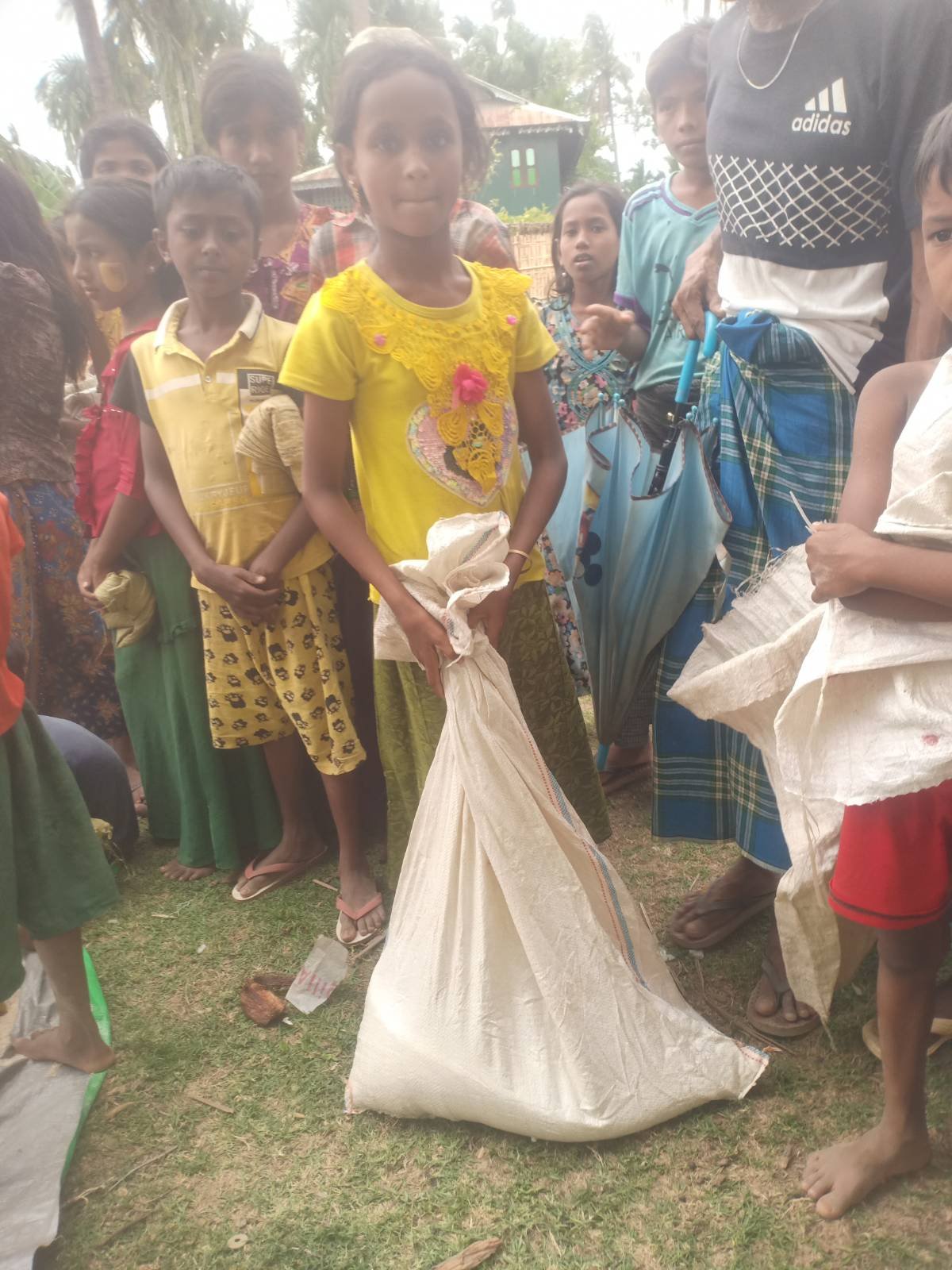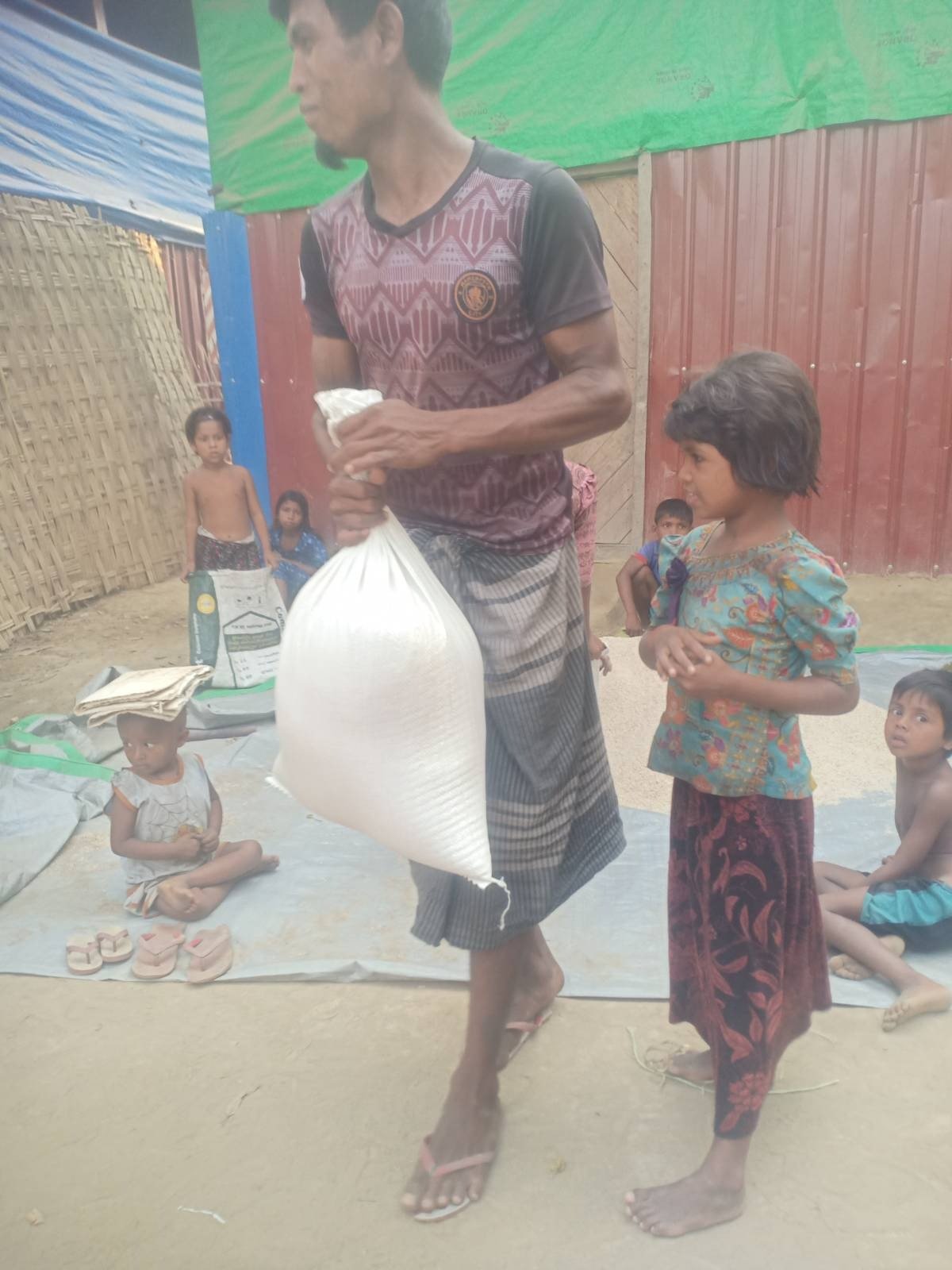Relief Efforts in Rakhine
Arakan, or Rakhine State, has been caught in a cycle of conflict and suffering for years. The situation is difficult to describe—it’s not just the violence, but the daily, grinding hardship that so many people face. The fighting has displaced thousands of families, forcing them to flee their homes and take shelter in makeshift camps. Life in these camps is nothing short of desperate. People don’t have enough to eat, children are falling sick with preventable diseases, and medical care is virtually non-existent. The elderly, the disabled, and pregnant women are among the hardest hit, struggling to survive in conditions that no one should have to endure.
Recently, local teams supported by Better Burma, with funds allocated from the generous contributions given by our donors, stepped in to provide much-needed relief. These teams didn’t have much to work with, but they made every dollar count. They packed bags of food—simple things like rice, lentils, salt, and oil—and headed out to the camps. For families with small children, they added eggs and hygiene supplies, knowing that a little bit of nutrition and cleanliness could make a world of difference in these circumstances. The food was enough to get them through the next few days, maybe a week, but it wasn’t just the food that mattered.
The very act of showing up—of being there with something, anything—gave the people in these camps a bit of hope that they hadn’t been forgotten.
The medical situation was even more pressing. Without any formal healthcare system left standing, local medics set up makeshift clinics in the camps. They treated everyone who came to them—young mothers, children, the elderly, landmine victims. Some of the stories they reported back are simply heartbreaking. There were people who had been suffering for weeks, even months, with no access to a doctor or even basic medicine. One can hardly imagine the pain of a child struggling with diarrhea or a mother going into labor with no help in sight. In these moments, the medics were lifesavers, literally pulling people back from the brink when it seemed like all hope was lost.
But it wasn’t easy, as getting to these camps was a challenge in itself. The roads were dangerous, and at times, the teams had to navigate military blockades or find alternate routes to avoid the fighting. There were times when they couldn’t make it through and had to turn back. Still, they kept going, returning day after day to deliver supplies. Still, the risks are real, and the danger that is present is a painful reminder of how perilous the situation remains for everyone involved.
Through all of this, Better Burma’s role has been to support these brave local teams—people who know the land, who understand the risks, and who are willing to put their own safety on the line to help their fellow citizens. It’s been incredible to see how much they’ve accomplished with so little. They were able to reach hundreds of families with food, hygiene supplies, and medical care! Their presence has meant everything to those struggling to survive in the camps.
But, sadly, it’s still not enough. The crisis in Arakan continues, and the needs are still overwhelming. So many people remain without proper shelter, clean water, or even basic medicine. Children are still dying from preventable diseases, and families are struggling to find enough food to make it through the week. Every bit of help makes a difference, but there’s so much more that could be done with additional resources.
We’ve already seen what’s possible when people come together to support this work. Donations have kept these local teams on the ground, bringing relief to those who need it most. For that, we are deeply grateful. But as the crisis deepens, we’re asking for your continued support. Your contribution would go towards helping these families—feeding them, providing medical care, and letting them know that they are not alone in this struggle.
We are incredibly thankful to those who have already given. Your generosity has saved lives. Now, more than ever, we need to keep that momentum going.
